How do Irish speakers feel about a language act?
- Published
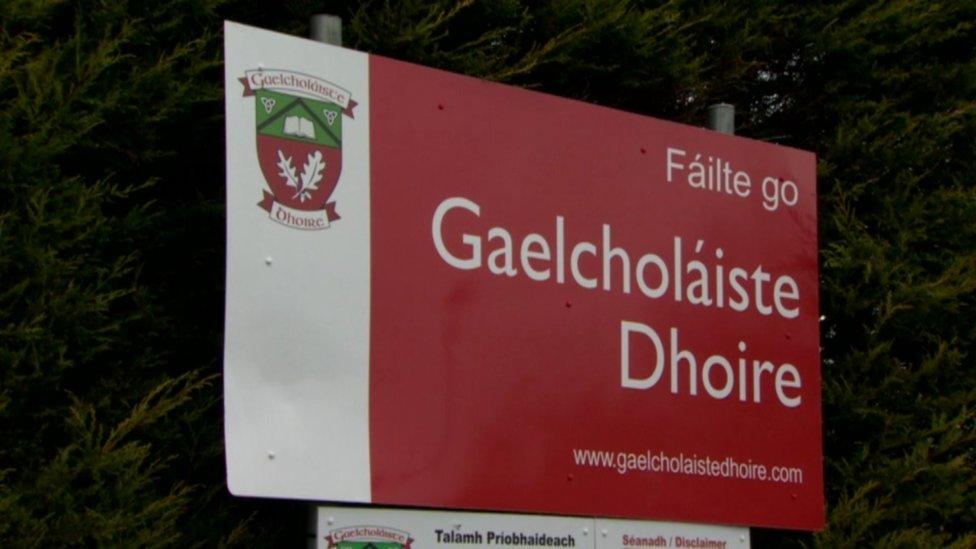
Gaelcholáiste Dhoire had only 16 pupils when it opened in 2015, but numbers have trebled
"I have more friends to talk to in Irish and I'm able to use my language more."
Paul is a pupil at what is, in Northern Irish terms, an unusual school.
He attends Gaelcholáiste Dhoire, one of only two two post-primary Irish medium schools in Northern Ireland.
An Irish language act could see more schools like Gaelcholáiste Dhoire open, as the act would give children the right to an education in Irish if they wanted it.
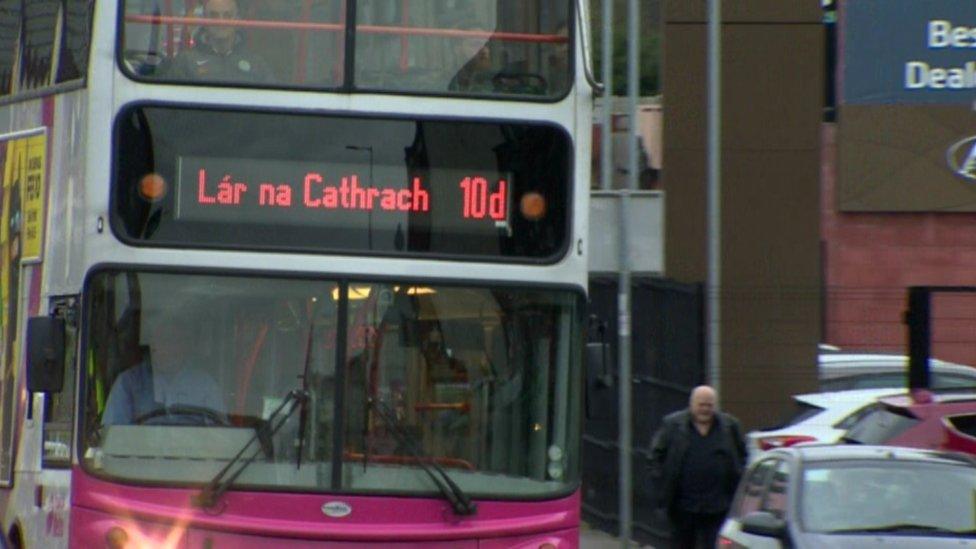
Some Belfast buses already display signs in Irish
It would also guarantee services through Irish on a par with those available in English.
Politicians have had their say on an Irish language act through the election campaign.
Nationalists and some other parties want one, many unionists do not.
Language legislation
But how do Irish speakers feel about an act? Is language legislation important to them?
Gaelcholáiste Dhoire was a good place for me to start asking those questions.
The school opened, controversially, in 2015 with only 16 pupils, but that number has trebled since and is expected to rise again this year.
The principal Diarmaid Ua Bruadair said that the school was vital to the local community.
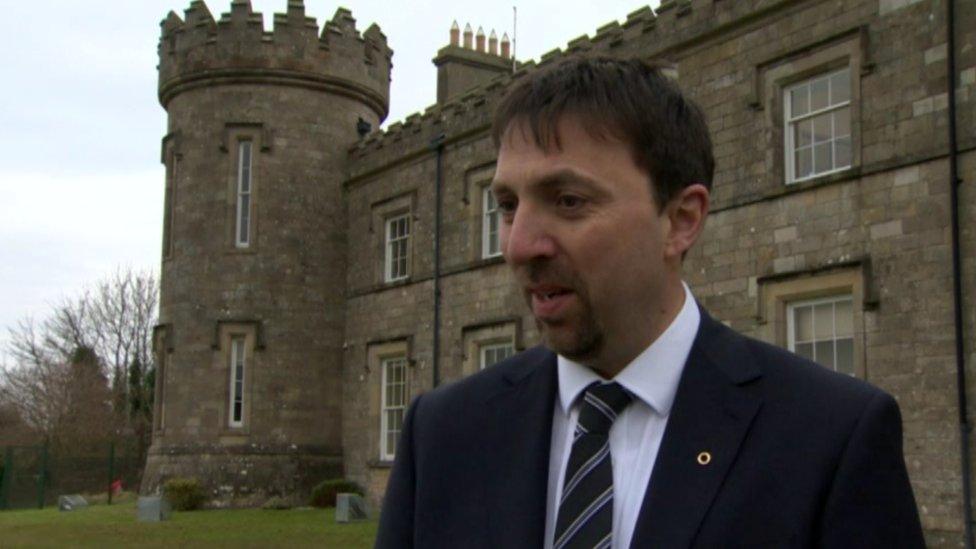
Principal Diarmaid Ua Bruadair says he does not know why an Irish language is controversial
"The Irish language has been spoken in the Sperrin mountains within living memory," he said.
"So there is a seed there and that seed was lying dormant for a while, and the Irish medium education and community sector has enabled that seed to grow again."
He said an Irish language act was essential, and does not understand why it is politically controversial.
"The students at this school have rights, and they should be protected," he said.
"There's a growing recognition across the world that minority languages are valuable, are precious, and should be protected."
Law courts and assembly debates
Aside from education provision, an Irish language act could also mean some other practical differences.
Irish could be used in courts and in assembly debates with simultaneous translation.
It would be used by state bodies, including the police, and a commissioner would be put in place to make sure the use of the language was facilitated.
Those proposals and others were detailed in a consultation document produced by the Department for Culture, Arts and Leisure back in February 2015.
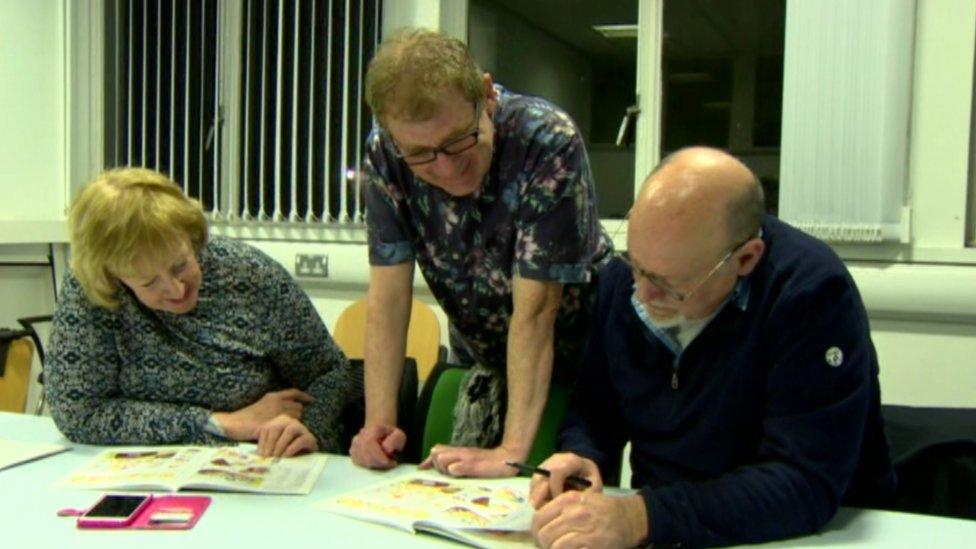
Irish is offered to adult learners at Stranmillis University College
However, no estimate was put on how much it might cost to implement.
That does not change students' views in another, very different, Irish class.
At Stranmillis University College in south Belfast, Ian Malcolm teaches Irish in the evening to lifelong learning students.
He is a Protestant and a unionist, but is a fluent speaker and Irish language enthusiast.
He wants an act, but thinks that a phased introduction would make common sense.
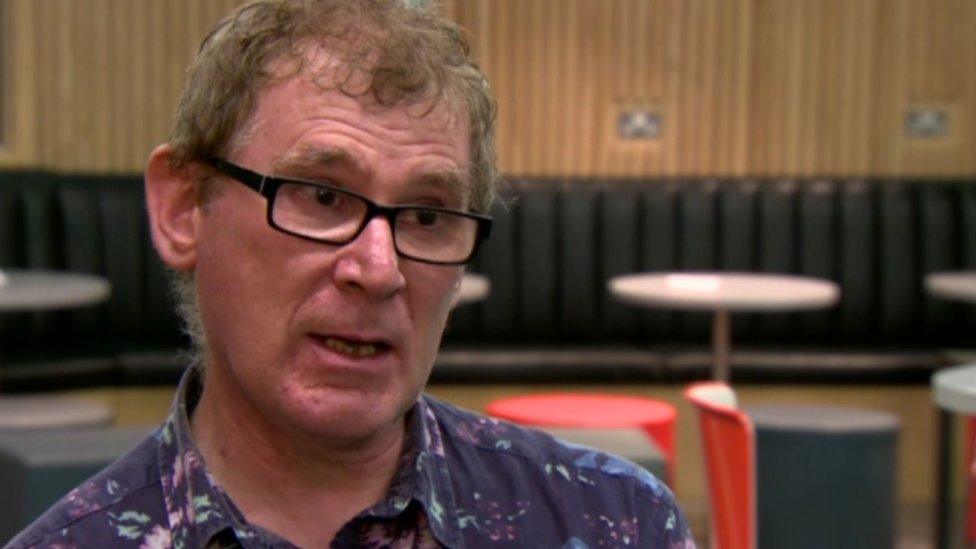
Ian Malcolm would like to see a languages commissioner
"I think that would be a more productive approach than some sort of blanket introduction where everything is introduced at once," he said.
"What's the point of an Irish language act if it's going to mean people sitting down and translating pointless documents nobody reads in English into pointless documents nobody reads in Irish."
"A very important move for me would be the appointment of an Irish language commissioner or indeed a languages commissioner for Northern Ireland who would be able to take a look at the overarching questions surrounding Irish in the province."
Controversial
His students, who come from all backgrounds, also do not see why a language act should be controversial.
Peter Tweed said the act would not force people to learn Irish.
"It's not something that we had the opportunity to learn at school, but I've always had an interest in language in general," he said.
Legislation "would potentially de-politicise the language to some degree," he said.
The Irish News columnist Patrick Murphy said people forget that, at many points in history, it was Protestants who ensured the language survived.
Out of the political arena
"The Irish language should be taken out of the political arena because in Northern Ireland the political arena is a sectarian arena," he said.
"I think the problem comes from the St Andrew's Agreement which suggests the Irish language is a Catholic language."
"In effect, the Presbyterian church has done more to preserve and protect the Irish language than the Catholic church ever did."
"In the 17th century the Presbyterian church was translating the Bible into Irish - the Catholic church didn't manage that until 1981."
All of the Irish speakers I talked with said they did not want the language to be a political football.
But when it comes to a language act the challenge is still to get the politicians all in harmony.